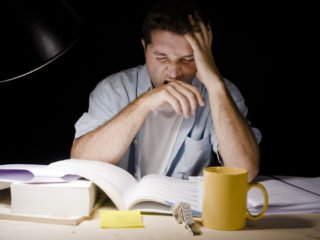Most of us drink coffee; some of us just because we love it and some of us because we need the caffeine to stay awake. 2020 has been full of long working days and sleepless nights. So, coffee has, unsurprisingly, become somewhat of a staple. Interestingly, it was apparently discovered by an Ethiopian shepherd who noticed the extra energy it gave his goats. (10). So you can credit your increased energy levels to…a goat.
Why are we so reliant on coffee?

Coffee for concentration I Longevity
According to the Mayo Clinic, millions of people worldwide rely on coffee to stay alert and improve concentration (1). So if you drink it. to help you stay awake, you aren’t alone. According to Healthline, often, we don’t think of caffeine as a drug, but it is addictive (3). So, we aren’t reliant on the coffee itself but rather on the caffeine it contains (1) (3). You can get your caffeine fix from more than just your morning coffee. Caffeine can be found in tea, energy drinks, and even soda (soft drinks like coca-cola) (3). Many people feel like they ‘need’ their morning coffee to function normally. In general, this is more of a reliance than an actual addiction. However, when we drink it daily, we build up resistance to the caffeine and long term, become dependant (1) (2) (3). According to the Addiction Centre (3), more than 90% of adults in the USA regularly consume an average of 200mg [or more] of caffeine per day (10) (11).
What is caffeine?
Caffeine is a natural stimulant that is most commonly found in tea, coffee, and cocoa plants (10). It’s a central nervous system stimulant and is the most commonly consumed ‘psychoactive substance in the world’ (2) (4). According to Cuppabean, a cup of coffee can range from 50 to more than 400mg per cup. For example, whilst a small, home-brewed coffee will likely provide about 50mg of caffeine, a Starbucks grande can contain over 300mg (2). In general, it is wise to assume that an 8oz cup (240ml) will contain around 100mg of caffeine (2) (4).
How does coffee keep me awake?
Essentially, the caffeine in coffee works by stimulating the brain and central nervous system (10). This helps you to stay awake and stave off tiredness.

Coffee I Longevity
Caffeine’s main effect is on the brain (10). It works by blocking adenosine (a neurotransmitter that relaxes the brain and induces tiredness) (10) (12). Without the introduction of caffeine, adenosine levels build up over the course of the day making you more tired as the day progresses (10). Caffeine also works to increase adrenaline levels in the blood, increasing brain activity (10) (11). The most impressive part of this is how quickly caffeine takes effect.
So how much can I drink?
The trouble with coffee is that it’s so variable when it comes to caffeine content. Most sources suggest that 400mg of caffeine per day is an acceptable amount for adults (2) (5) (6). This works out to about 4 cups or 945ml of coffee per day. Whilst this is the recommended amount, many people drink more than this without issue (2) (5) (6). Just make sure to note that coffee is not the only source of caffeine. Other drinks such as sodas (soft drinks) also contain caffeine and this also contributes to your daily intake (2) (7) (8).
How would I know if I’ve had too much?
Drinking too much coffee over a short amount of time can have some pretty nasty side effects (2) including:
- Restlessness
- Anxiety
- Dizziness
- Upset stomach
- Irritability
- Insomnia
- Fast heartbeat
- Tremors
If you experience any of these symptoms after drinking only a small amount of coffee, you may be caffeine sensitive (2). Can you die from a caffeine overdose? Well theoretically, yes. However, it’s almost impossible to die from coffee alone. You’d have to drink more than 100 cups (23.7 liters) in a single day. So, keep your coffee intake well under 100 cups and you’ll be okay (2). There are a few rare cases of people dying from a caffeine overdose but in all of these cases, caffeine supplements were involved (2) (9).
The takeaway
Essentially, if you drink coffee to wake yourself up, don’t worry, you aren’t alone. Most people require their cup of joe in order to wake up and ready themselves for the day. Try to keep your intake of caffeinated coffee at less than four cups a day if you can. As long as you aren’t drinking 100 cups per day though, your coffee habit likely won’t kill you. Whether you drink it black, with milk, or in a cappuccino, enjoy!
References:
- https://www.mayoclinic.org/healthy-lifestyle/nutrition-and-healthy-eating/in-depth/caffeine/art-20045678
- https://www.healthline.com/nutrition/how-much-coffee-should-you-drink
- https://www.addictioncenter.com/stimulants/caffeine/
- https://pubmed.ncbi.nlm.nih.gov/9889511/
- https://www.healthline.com/nutrition/how-much-coffee-should-you-drink#coffees-caffeine-content
- https://pubmed.ncbi.nlm.nih.gov/12519715/
- https://www.sciencedirect.com/science/article/pii/S0278691513007175
- https://pubmed.ncbi.nlm.nih.gov/15635355/
- https://www.ncbi.nlm.nih.gov/pmc/articles/PMC5986491/
- https://www.healthline.com/nutrition/what-is-caffeine
- https://onlinelibrary.wiley.com/doi/full/10.1111/j.1750-3841.2010.01561.x
- https://pubmed.ncbi.nlm.nih.gov/11283304/
- https://www.cuppabean.com/how-much-caffeine-in-coffee/



![women [longevity live]](https://longevitylive.com/wp-content/uploads/2020/01/photo-of-women-walking-down-the-street-1116984-100x100.jpg)










